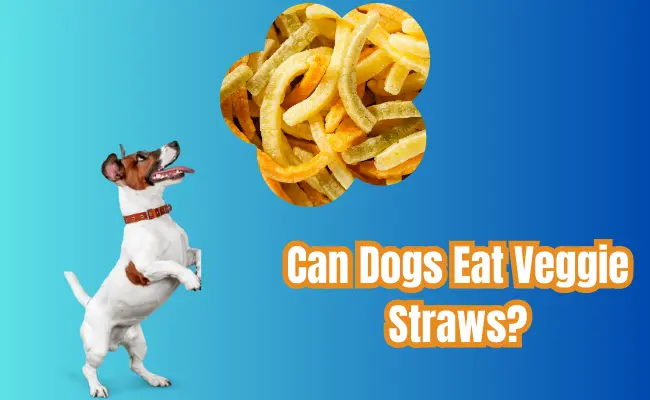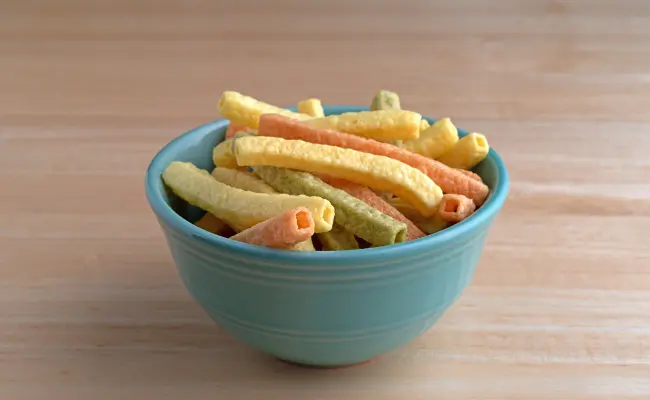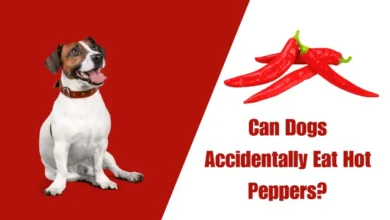
Can Dogs Eat Veggie Straws?
Ever caught your dog staring longingly at your veggie straws? 🐾 Before sharing, stop! While these crunchy snacks seem healthy, most veggie straws are not safe for dogs. They’re often packed with salt, artificial flavors, and even toxic ingredients like onion powder.
In this quick guide, you’ll learn:
- Why veggie straws can harm your dog
- Safer, dog-friendly snack swaps
- What to do if your pup sneaks a bite
Keep reading to protect your furry friend and find treats they’ll love and thrive on! 🥕
Can Dogs Eat Veggie Straws?
Short Answer: No, dogs shouldn’t eat veggie straws. While plain ones aren’t immediately toxic, they’re packed with too much salt, unhealthy fats, and empty calories. Flavored varieties (like ranch or spicy) often contain onion or garlic powder, which are poisonous to dogs.
Why Veggie Straws Are Bad for Dogs
- Onion/Garlic Risk: These ingredients damage red blood cells, causing weakness or anemia. Even small amounts in flavored veggie straws are dangerous.
- Too Salty: A single serving has 220mg of sodium—nearly half a small dog’s daily limit. This can lead to dehydration or kidney issues.
- High Fat: Oil and starch can upset your dog’s stomach or cause pancreatitis (a painful pancreas inflammation).
- No Nutrition: Veggie straws lack vitamins/minerals. They’re just crunchy “junk food” for pups.
What If My Dog Ate Veggie Straws?
- Plain straws (1–2 pieces): Offer water and watch for vomiting or diarrhea.
- Flavored straws or a whole bag: Call your vet ASAP—onion/garlic poisoning needs quick treatment.
Safer Snack Idea: Try baked carrot sticks or apple slices (no seeds!) instead. Your dog will love the crunch and stay healthy!
👉 Next up: Dog-friendly veggie chip recipes and vet-approved treat ideas!
Related Post: Can Dogs Eat Cheerios? Safe or Risky Snacking?
What are Veggie Straws?

Veggie straws are thin, crunchy snacks shaped like straws. They’re often sold as a “healthier” alternative to potato chips for humans. But don’t let the “veggie” name fool you—they’re not safe for dogs.
These snacks are usually made from:
- Processed veggies: Like potato starch, corn, or spinach powder (not fresh vegetables).
- Oils: Sunflower or canola oil, which are high in fat.
- Salt: One serving has 220mg of sodium—way too much for dogs.
- Artificial flavors: Ranch, cheese, or spicy flavors may hide onion or garlic powder (toxic to dogs).
While veggie straws might seem like a fun treat, they’re low in nutrients and high in empty calories. They’re baked or fried, making them more like junk food than real veggies.
Related Post: Can Dogs Eat Orange Chicken?
Why Veggie Straws Are Unsafe for Dogs
Veggie straws might seem like a harmless snack, but they’re not safe for dogs. Let’s break down why these crunchy treats can harm your pup.
Harmful Ingredients in Veggie Straws
1. Onion/Garlic Powder
Flavored veggie straws (like ranch or spicy) often contain onion or garlic powder. These ingredients damage your dog’s red blood cells, leading to weakness, pale gums, or even anemia. Even a small amount can make your dog very sick.
2. Too Much Salt
A single serving of veggie straws has 220mg of sodium—way more than a dog should eat. Too much salt can cause dehydration, kidney problems, or salt poisoning. For small dogs, just a few straws can hit their daily limit.
3. Artificial Additives
Many brands use artificial colors (like Red 40) or preservatives. These chemicals can trigger allergies, itchy skin, or long-term health issues. Even “natural” flavors might hide unsafe ingredients.
4. Empty Calories
Veggie straws are mostly starch and oil, with no real vitamins or minerals. Feeding them regularly can lead to weight gain or pancreatitis (a painful pancreas condition). They’re like junk food—tasty but unhealthy.
Health Risks of Feeding Veggie Straws
Giving your dog veggie straws might seem harmless, but these snacks can cause serious health problems. Here’s what every pet owner should know:
1. Pancreatitis
Veggie straws are high in fat from oils and starch. Too much fat can inflame your dog’s pancreas (a small organ that helps digestion). This condition, called pancreatitis, causes severe vomiting, belly pain, and loss of appetite. Treatment often needs a vet visit and medication.
2. Obesity
A single serving of veggie straws has 130+ calories. For a 10-pound dog, that’s like a human eating a whole cheeseburger in one snack! Regular treats like this can lead to weight gain, joint pain, or diabetes.
3. Digestive Issues
Processed ingredients in veggie straws (like potato starch and artificial flavors) are hard for dogs to digest. This can cause:
- Bloating: A swollen, uncomfortable belly.
- Vomiting or diarrhea: Especially in puppies or sensitive dogs.
- Gas: Unpleasant for you and your pup!
What to Do If Your Dog Eats Veggie Straws
Accidents happen—if your dog snags veggie straws, stay calm and follow these steps to keep them safe.
Emergency Steps
- Check the flavor: Ranch, spicy, or onion/garlic-flavored veggie straws need immediate vet care. These contain toxic ingredients that harm red blood cells.
- Watch for symptoms: Look for vomiting, diarrhea, tiredness, or seizures. These signs mean your dog needs help fast.
- Offer water: Give fresh water to help flush out excess salt. Avoid food for 6–8 hours to let their stomach settle.
When to Call the Vet
Contact your vet right away if:
- Your dog ate more than 5–10 straws (even plain ones).
- You see swollen face/paws (allergic reaction) or blood in their poop (onion poisoning).
- They refuse food for over 12 hours or seem very weak.
Example: A 10-pound dog eating 20 veggie straws consumes 440mg of sodium—double their daily limit. This requires urgent vet care to prevent dehydration or kidney damage.
Pro Tip: Keep veggie straws out of reach, and swap them for baby carrots or apple slices (no seeds!). Your dog gets the crunch without the risk.
Healthy Alternatives to Veggie Straws
Skip the veggie straws and try these dog-safe snacks instead! These options are tasty, low-calorie, and packed with nutrients your pup will love.
Vet-Approved Snack Ideas
1. Carrot Sticks
Crunchy and low in calories, carrots are perfect for dogs. They’re rich in beta-carotene (good for eyesight) and help clean teeth. Great for chewing!
2. Green Beans
Fresh or frozen green beans are a hit with dogs. Frozen ones soothe teething puppies, and they’re full of fiber to aid digestion.
3. Apple Slices (No Seeds!)
Sweet and juicy, apples provide vitamins and fiber. Always remove seeds (they’re toxic) and cut into small pieces to prevent choking.
DIY Veggie Chips for Dogs
Make homemade veggie chips that are safe and healthy:
- Slice: Cut a sweet potato into thin rounds or strips.
- Bake: Spread on a baking sheet and cook at 250°F for 2–3 hours until crispy.
- Cool: Let them cool completely before serving.
No oil or salt needed! Store in an airtight container for up to a week.
Pro Tip: Swap veggie straws with these low-calorie treats for dogs. Your pup gets the crunch they crave without the risks!
FAQs
Can Dogs Eat Veggie Straws?
No, dogs shouldn’t eat veggie straws. They often contain toxic ingredients like onion or garlic powder, too much salt, and unhealthy fats. These can cause vomiting, anemia, or kidney issues. If your dog ate veggie straws, offer water and call your vet if they show lethargy or swelling.
Can puppies eat veggie straws?
No. Puppies’ tiny bodies can’t handle the salt and fat in veggie straws. Their growing organs are extra sensitive, and even a few pieces could cause vomiting or diarrhea. Instead, use boiled chicken bits or puppy-safe training treats for rewards.
Are Sensible Portions veggie straws safe?
No. Despite the “veggie” name, these snacks contain potato starch, oils, and additives that are unhealthy for dogs. The “sea salt” flavor alone has 220mg of sodium per serving—too much for most pups. Always check labels, and when in doubt, choose dog-specific treats.
My dog ate a whole bag—what now?
Call your vet immediately. For example, a 10-pound dog eating 38 veggie straws gets double their daily sodium limit, risking dehydration or kidney damage. Bring the packaging to your vet so they can check for toxic ingredients like onion powder.
Conclusion
So, can dogs eat veggie straws? The answer is clear: it’s not worth the risk. While a tiny piece of plain veggie straw might not cause harm, most versions are loaded with salt, unhealthy fats, or even toxic ingredients like onion powder. Why gamble with your pup’s health when there are safer options?
Instead of veggie straws, try dog-specific treats or fresh veggies like carrot sticks or apple slices (no seeds!). These choices give your dog the crunch they love without the dangers.
When in doubt, ask your vet. They know your dog’s health best and can recommend snacks tailored to their needs. Your pup’s wagging tail and happy zoomies will thank you for keeping their snacks safe and healthy!
# Can Dogs Eat Veggie Straws?



